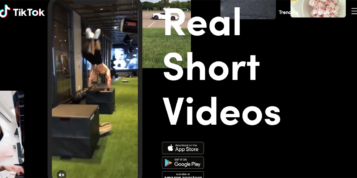Relationships are about shared experiences. We share what we want to share. Relationships are about letting others see you in the way you want them to see you. It is about me presenting myself to the world. Relationships are about self expression. It is only in deep serious relationships where we move from self expression to self exposure.
Facebook tapped into this basic need, the need to express oneself. It has grown fat on the back of 800 million people sharing their lives online. Up until now it has always been an explicit activity, I decide what to post, share, tell you, and what I ‘like’. It is about consciously projecting myself in a controlled manner. Look at me, I saw this great video. Look at me, I am reading this very interesting book. I have just checked in to this amazing exhibition. This is what I think about this news story etc.
I filter and select the best bits of my life to present to you to ensure you build and maintain the impression I want you to have of me. It is not about the warts and all picture of me. Up until recently it was a one size fits all expression of oneself. Recently, in reaction to Google+ and its circles of friends, I can now create different expressions for different groups. So I may share different information with my work colleagues than with my close friends, but each persona I create is crafted by me.
Sometimes we may not be fully conscious of the way we shape ourselves through our postings. We fit into an online role that we can believe is not constructed. But we get a cold wakeup call when we either misjudge the social sensibilities of our circles of friends, or worse still, post something that shows off a side of our nature or personality we would prefer to keep obscured. Late night, drunken Facebook posts provide many examples.
But now our control over our online persona is about to change. At the F8 conference last week Facebook announced Open Graph. Open Graph opens the door to viewing the real me. Its protocol is designed to support real life objects, such as activities, places and products, and allows people to develop apps that, as Facebook put it, ’simplify’ sharing. Facebook categoriese apps that use the platform into four groups: Communication, Games, Media and Lifestyle.
From now on, any website will be able to share with Facebook any activity you do that it thinks is interesting. Not what you want to share but what you do. From Facebook’s perspective this is just an extension of what it already does. After all, we are on Facebook to share so it is helping us by introducing this ’frictionless sharing’. It is taking away the burden of having to explicitly do the sharing by making it automatic. This fundamental difference from me controlling and filtering what I want to share, to it being automatically handled for me is very worrying.
Just by listening to a track on Spotify (which now requires a Facebook account as a condition of membership) I will generate a status update. With music this is innocent enough. Who could complain about that? But as Open Graph apps spread they will monitor and share more and more aspects of our lives.
Our digital lives will be laid bare. Our real web browsing habits, the good books we read and the pulp. The cool music and the embarrassing old crap I still listen to. Politics, activities, lifestyle, tastes, predigests, obsessions, all on open view. Never mind NSFW – not safe for work, what about NSFL – not safe for life.
Of course there will be (must be) controls to allow some ability to switch on or off this broadcast of our lives. But it is clear the direction Facebook is heading. It is already tracking our visits to any sites that integrate Facebook.
Go back 17 years to 1994 when lifecasting was born. Steve Mann started to use a portable wearable camera to transmit his life online 24/7. He put his real life up for view for anyone to see. He was followed by many others, perhaps most famously by in 2007 by Justin Kan of Justin.tv fame.
Clearly some people want to expose everything about their real lives. Granted there is a bit of an exhibitionist in all of us. But mostly we want people to see us in a particular light, as a construction of our making. With Open Graph it looks like Facebook is moving towards a digital version of lifestreaming. But do we all want to be stars of our own online Justin.tv or do we sometimes want to pull the digital curtains?






